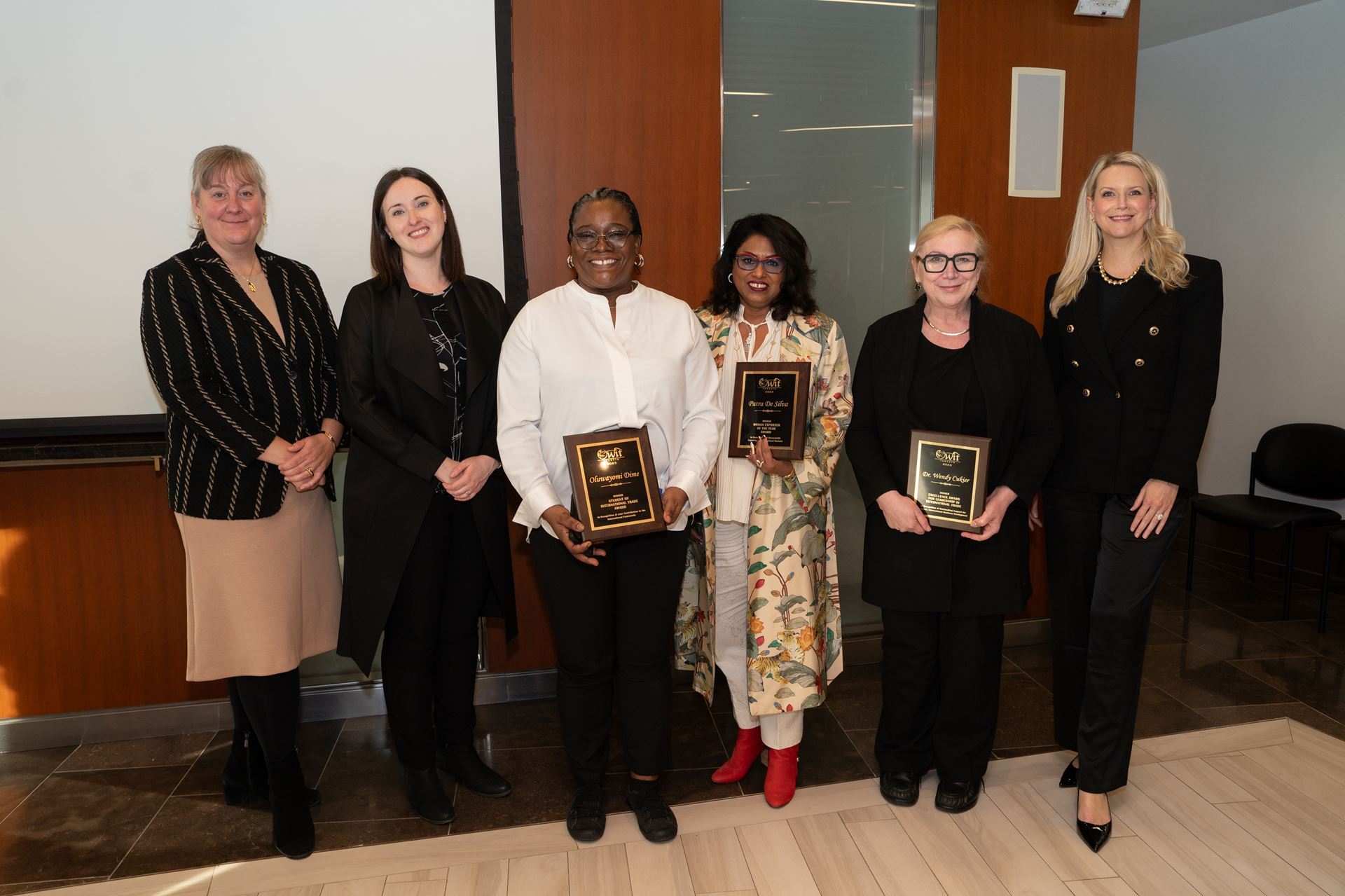The full-house celebration at the Ontario Investment and Trade Centre recognized and celebrated the achievements of women in international trade.
Congratulations to our outstanding award winners and to all nominees for their continued dedicated work in international trade.
Student of International Trade Award – Oluwayomi Dime
Oluwayomi is a student at Centennial College, and works for a Nigerian manufacturing company. She has leveraged knowledge from international marketing and innovation lectures to enhance social channels. Oluwayomi has demonstrated a keen understanding of cultural diversity, beliefs, and values. She adapts to cultural norms such as respecting Chinese New Year and observing Islamic prayers in Turkey, for effective community and collaboration.
Woman Exporter of the Year Award – Patra De Silva
Patra is the President of NHV Natural Pet Products, and exports veterinarian-formulated herbal supplements to 55 countries. The company has achieved export revenues of over ten million Canadian dollars.
Patra has established B2B partnerships with distributors in key markets such as the USA, Japan, UK, France, South Korea, Malaysia, Singapore and Taiwan. She is the BC Chapter president of the International Women’s Forum, contributing to women’s leadership globally. NHV Natural Pet Products is based in Vancouver.
Excellence Award for Leadership in International Trade – Dr Wendy Cukier
Wendy is the Founder and Director of the Diversity Institute Women Entrepreneurship Knowledge Hub at Toronto Metropolitan University. Wendy is an advocate for women and equity-deserving groups in entrepreneurship, international business, and trade. She is influential in raising awareness about the barriers faced by women in trade and advocating for inclusive trade practices. Wendy is amember of the Global Affairs Gender and Trade Advisory Group, working to include gender chapters in Canada's global trade agreements
.

From left to right: Clare Barnett, Brampton Economic Development; Jessica Horwitz, Bennett Jones; Oluwayomi Dime, Centennial College; Patra De Silva, NHV Natural Pet Products; Dr. Wendy Cukier, WEKH; Shay Lowe, WEKH
About OWIT
The Organization of Women in International Trade (OWIT) is an international non-profit professional organization, with chapters around the world (www.owit.org), dedicated to advancing global trade opportunities for women. There are two Canadian chapters: Toronto (www.owit-toronto.ca) and Ottawa (www.owit-ottawa.ca).
 OWIT-Toronto wants to provide you with current and valuable news and resources on a regular bases. We do this through our site as well as through our quarterly newsletter. Sign up today to receive these in your inbox.
OWIT-Toronto wants to provide you with current and valuable news and resources on a regular bases. We do this through our site as well as through our quarterly newsletter. Sign up today to receive these in your inbox. OWIT-Toronto wants to provide you with current and valuable news and resources on a regular bases. We do this through our site as well as through our quarterly newsletter. Sign up today to receive these in your inbox.
OWIT-Toronto wants to provide you with current and valuable news and resources on a regular bases. We do this through our site as well as through our quarterly newsletter. Sign up today to receive these in your inbox.